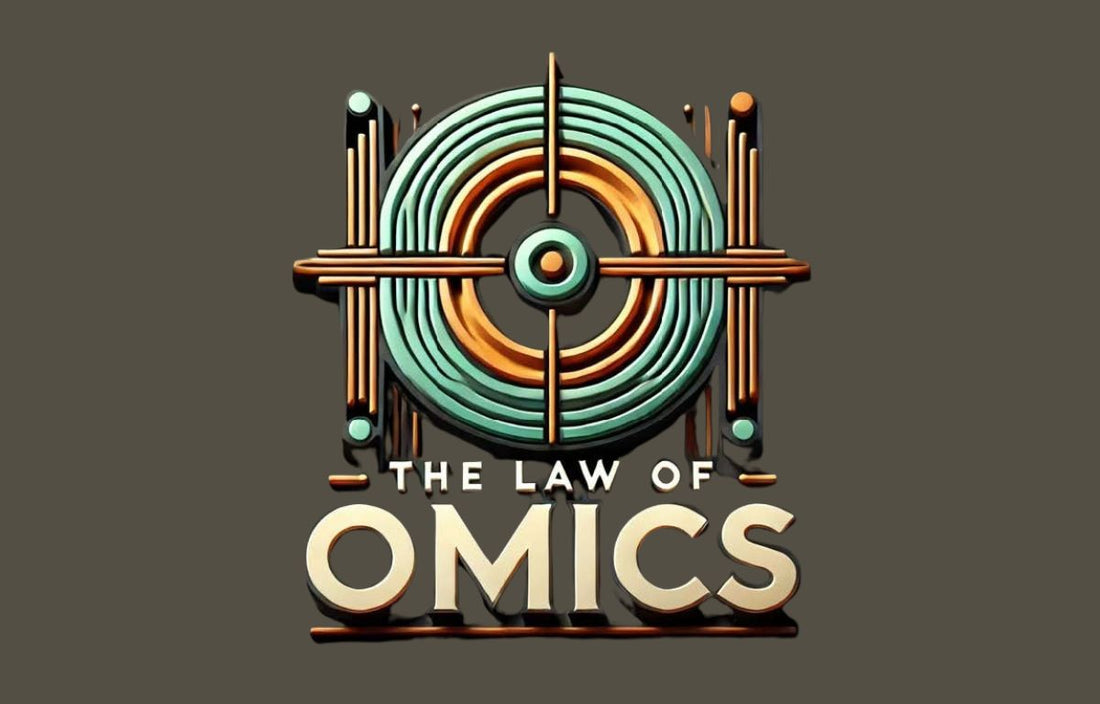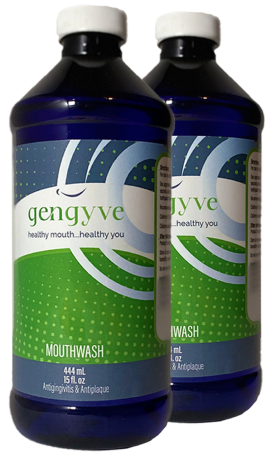
The Law of Omics
Share
The Law of Omic: Revolutionizing Dental Care
Welcome to "The Law of Omics," a groundbreaking blog that explores the cutting-edge intersection of dentistry and the rapidly evolving world of "omics" sciences. As dental professionals, we stand on the brink of a new era in oral healthcare, where various OMICs fields are reshaping our understanding of oral health and disease.
Our journey through the OMICs landscape will cover several key areas:
1. Genomics: We'll explore how the study of genetic material is revolutionizing our understanding of oral diseases. From identifying genetic predispositions to periodontal disease to uncovering the genetic basis of dental caries, genomics is paving the way for personalized preventive strategies.
2. Proteomics: Discover how the analysis of proteins in saliva and oral tissues is enhancing diagnostics and treatment selection. Proteomics offers insights into the molecular mechanisms of oral diseases and potential therapeutic targets.
3. Microbiomics: Delve into the complex world of the oral microbiome. Learn how the balance of microbial communities in the mouth influences oral and systemic health, and how this knowledge is reshaping our approach to oral hygiene.
4. Metabolomics: Understand how the study of metabolites in oral fluids can provide real-time information about oral health status and disease progression.
5. Transcriptomics: Explore how analyzing gene expression patterns in oral tissues can reveal the underlying molecular processes of oral diseases and guide treatment strategies.
6. Epigenomics: Learn about the role of epigenetic modifications in oral health and how environmental factors can influence gene expression in the oral cavity.
Through informative articles and expert interviews, we will delve into the latest research and technological advancements in each of these OMICs fields. You'll gain insights into how these sciences are transforming dental practices and patient care, paving the way for more precise, effective, and personalized oral healthcare.
As we explore each OMICs discipline, we'll consistently highlight the practical applications in everyday dental practice. You'll learn how to integrate these cutting-edge concepts into your work, enhancing your ability to provide state-of-the-art care to your patients.
Importantly, each post will conclude by focusing on how our professional-strength mouthwash, Gengyve, harnesses the power of OMICs knowledge. We'll demonstrate how Gengyve's unique formulation takes advantage of the latest insights from genomics, proteomics, and particularly microbiomics to improve oral hygiene and overall health.
By using Gengyve, you're not just cleaning your patients' mouths – you're applying the most advanced OMICs science to optimize their oral microbiome, support healthy protein expression, and create an environment that promotes genomic stability in oral tissues. We'll show you how Gengyve works synergistically with the body's natural OMICs-level processes to enhance oral health in ways that traditional oral care products simply can't match.
Join us on this exciting journey through the world of dental OMICs. Gain the knowledge and understanding to embrace the power of these revolutionary sciences in your dental practice, and learn how Gengyve can be your partner in translating OMICs insights into superior oral health outcomes for your patients.
The Law of Omics is Proudly brought to you by GengyveUSA and their professional strength mouthwash!
Please click the link below and check us out and while you are there get a bottle to try, you will love it and your patients will love you for the results it produces!
Geonomics: Unlocking the Genetic Code of Oral Health
Genetic Risk Assessment: Dentists can now use genomic data to identify patients at higher risk for conditions like periodontitis or oral cancer, allowing for proactive preventive measures.
Personalized Treatment Plans: By analyzing a patient's genetic profile, dentists can tailor treatments to individual needs, improving efficacy and reducing adverse reactions.
Future of Dental Diagnostics: Emerging genetic testing methods promise to revolutionize early detection of oral diseases, potentially transforming preventive care strategies.
Microbiomics: The Oral Ecosystem's Hidden Influence

|
 |
 |
|
Oral-Systemic Connection
Recent research has unveiled the intricate relationship between the oral microbiome and overall health. The balance of microorganisms in our mouths can influence not only oral health but also systemic conditions like cardiovascular disease and diabetes. Understanding this connection allows dentists to play a crucial role in wholebody wellness. |
Targeted ProbioticsAs our knowledge of the oral microbiome expands, so does the potential for targeted probiotic therapies. These custom-designed beneficial bacteria can help restore balance to the oral ecosystem, potentially preventing or treating conditions like dental caries and periodontal disease. Dentists are now exploring ways to incorporate these probiotics into treatment plans. |
Diagnostic PotentialThe oral microbiome serves as a window into overall health. By analyzing the composition of oral bacteria, dentists may soon be able to detect early signs of various diseases, both oral and systemic. This emerging field of microbiome-based diagnostics promises to transform the dental office into a hub for comprehensive health screening. |
Proteomics: Decoding the Language of Proteins
1. Salivary Diagnostics:
Proteomics has opened new avenues for non-invasive diagnostics through salivary analysis. By examining the protein composition of saliva, dentists can potentially detect early signs of oral cancer, periodontal disease, and even systemic conditions like diabetes. This breakthrough allows for quick, painless screening during routine dental visits.
2. Personalized Treatment Monitoring:
Protein biomarkers in saliva can serve as indicators of treatment efficacy. By tracking changes in protein levels, dentists can monitor how patients respond to various therapies, allowing for real-time adjustments to treatment plans. This personalized approach ensures optimal outcomes for each individual patient.
3. Tissue Regeneration
Proteomics is driving advancements in tissue engineering and regenerative dentistry. By understanding the role of specific proteins in tissue growth and healing, researchers are developing new techniques for bone and soft tissue regeneration. This could revolutionize treatments for periodontitis and implant procedures.
4. Drug Development
Insights from proteomics are guiding the development of new, targeted medications for oral diseases. By identifying key proteins involved in disease processes, researchers can design drugs that specifically address these molecular targets, potentially leading to more effective and less invasive treatments.
|
Definition Epigenomics is the systematic study of the complete set of epigenetic modifications on the genetic material of a cell. It examines how these modifications affect gene expression without altering the underlying DNA sequence. |
Scope Epigenomics encompasses genome-wide analysis of DNA methylation patterns, comprehensive mapping of histone modifications, and profiling of non-coding RNA expression and interactions. |
Technologies Epigenomic research employs advanced technologies like nextgeneration sequencing techniques (ChIP-seq, ATAC-seq, and bisulfite sequencing), mass spectrometry for histone modification analysis, and microarray-based methods for DNA methylation profiling. |
Data Integration Epigenomic data is often integrated with other OMICs data (genomics, transcriptomics, proteomics) to provide a holistic view of cellular regulation and function. |
|
Relevance to Oral Health Epigenomics helps map epigenetic changes associated with oral diseases like periodontitis and oral cancer, understand how environmental factors influence oral health, and identify potential epigenetic biomarkers for early disease detection. |
Dynamic Nature Unlike genomics, epigenomics captures the dynamic and reversible nature of gene regulation, offering insights into how cells respond to environmental cues and stressors. |
Personalized Medicine Epigenomic profiles can inform personalized treatment strategies, as they reflect both genetic predisposition and environmental influences. |
Therapeutic Potential Identifying epigenetic targets for drug development, including potential interventions to reverse harmful epigenetic changes in oral tissues, is a promising avenue for future therapies. |
In the context of oral health, epigenomics provides a crucial layer of information that complements other OMICs approaches. It helps explain how lifestyle factors, oral hygiene practices, and environmental exposures can influence oral health outcomes at a molecular level. This knowledge is invaluable for developing more effective preventive strategies and personalized treatment approaches in dentistry.: Genetic Control
Transcriptomics: Unveiling Cellular Messaging in Oral Health
Early Disease Detection
Transcriptomics allows dentists to identify early markers of oral diseases by analyzing gene expression patterns. This technology can reveal cellular changes before visible symptoms appear, enabling proactive intervention and improved patient outcomes.
Precision Therapies
By understanding which genes are active in different oral conditions, dentists can develop more targeted and effective treatments. Transcriptomics guides the creation of precision therapies that address the specific molecular mechanisms underlying each patient's condition.
Personalized Oral Care
Transcriptomic profiles can inform personalized oral care regimens. Dentists can recommend specific products or treatments based on a patient's unique gene expression patterns, optimizing preventive care and treatment outcomes.
Advanced Research
Transcriptomics is driving dental research forward by providing deeper insights into the molecular basis of oral health and disease. This field is uncovering new therapeutic targets and advancing our understanding of complex oral conditions.
Integrating Omics into Everyday Dental Practice
|
Education & Training Dentists need specialized training in genomics, proteomics, and other omics sciences to effectively utilize these technologies in their practice. |
Technology Adoption Investing in cutting-edge diagnostic tools and software for omics data analysis is crucial for modern dental practice. |
Patient Communication Dentists must effectively communicate complex omics concepts to patients, explaining the benefits of personalized treatments based on genetic profiles. |
Collaborative Care Partnerships with specialists in genomics, bioinformatics, and other related fields can enhance the integration of omics into dental practice. |
The Future of Dentistry: Embracing the Omics Revolution
With Gengyve as Your Partner!

| Omics Field | Current Impact | Future Potential |
| Genomics | Personalized risk assessment | Gene therapy for oral diseases |
| Proteomics | Salivary diagnostics | Protein-targeted drug delivery |
| Microbiomics | Probiotic treatments | Microbiome engineering |
| Epigenetics | Lifestyle-based interventions | Epigenetic modification therapies |
| Transcriptomics | Early disease markers | RNA-based regenerative treatments |
Click here to learn more about the benefits of our pioneering mouthwash and then go ahead get a bottle to try out for yourself! Gengyve will deliver results for your patients, as well as enhance the service level of your practice!

